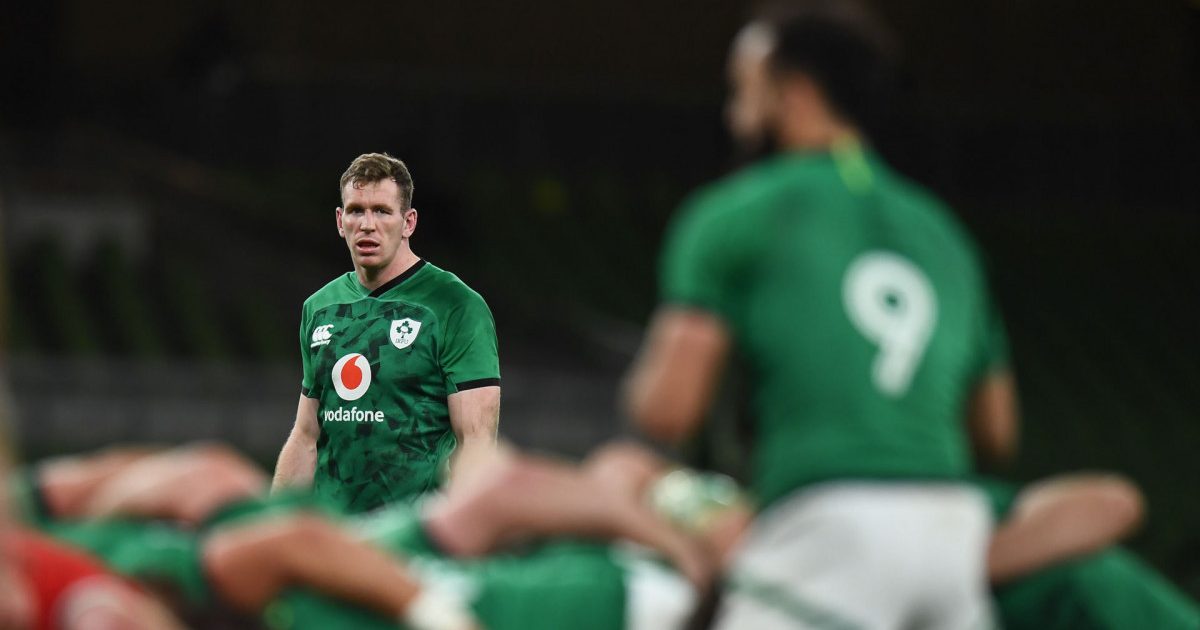Ireland's 35 stone centre pairing is the heaviest in their Test history

A common refrain in Irish rugby circles is that the island of Ireland struggles to produce sizable rugby athletes.
Last year Leinster head coach Leo Cullen raised eyebrows after his side were outmuscled by Saracens in the Champions Cup, with the line: “You know it’s genetics, really; you can really only do so much about it.” He wasn’t the first and he certainly won’t be the last Irish rugby coach to fall back on the gene pool excuse.
Yet, if you look at Ireland’s midfield pairing for their Autumn Nations Cup match with Georgia this weekend, you’d be forgiven for wondering what the hell they were talking about.
With Stuart McCloskey and Chris Farrell, Ireland will field the heaviest midfield pairing in their history, the duo tipping the scales at 221kg or 34 stone 11 Ibs between them. McCloskey stands 6’4 and weighs in at 111kg, while Farrell is but a tiddler in comparison at 6’3, 110kg.
By way of comparison, the pair would have been the heaviest two players on Ireland’s 1976 tour of New Zealand, with the exception of 112kg second-row Emmett Rafferty. They would have towered over their fellow centres on that tour: 5’10, 77kg Mike Gibson and even Ian McIlrath, an outsized centre by the standards of the day at 6’2 and 95kg.
Not only are the McCloskey and Farrell massive centres by Irish rugby standards, they’re right up there among the heaviest international midfield pairing ever in international rugby.
It’s possible the position in the rugby that has seen the biggest change in terms of mass since professional changed the game in 1995.
A comparison between the first-ever RWC final contested in 1987 by the All Blacks and France and the 2019 final in Japan between England and South Africa, speaks to change in the dimensions.
In ’87, New Zealand fielded Warwick Taylor and Joe Stanley against France’s Denis Charvet Patrice and Philippe Sella. The average weight of the four centres was 81.75kg (12st 12lb); New Zealand 81kg (12st 11lb) and France 82.5kg (13st).
In Yokohama in 2019, the average weight of the four centres on show was 99.5kg (15st 9lb). England head coach Eddie Jones fielded the heaviest centre partnership in World Cup history at 102kg (16st 1lb), helped by the 112kg (17st 9lb) Manu Tuilagi. The Springboks’ pair of Damian de Allende and Lukhanyo Am tipped the scales at 97kg (15st 4lb) on average.
In fact, in the 21st century, there has not been a midfield pairing in a Rugby World Cup final that has averaged under 95kg (14st 13lb), while there was not one that averaged over 90kg (14st 2lb) in the twentieth.
However, how effective hulking centres are, especially at 13, is another question entirely. One school of thought would tell you that big thirteen’s struggle in the notoriously difficult to defend position. Brian O’Driscoll, who knew a thing or two about playing 13, scored two tries when pitted against the monstrous 6’7, 18 stone frame of England’s Matt Banahan in 2011.
Big of course, doesn’t necessarily mean better.











































